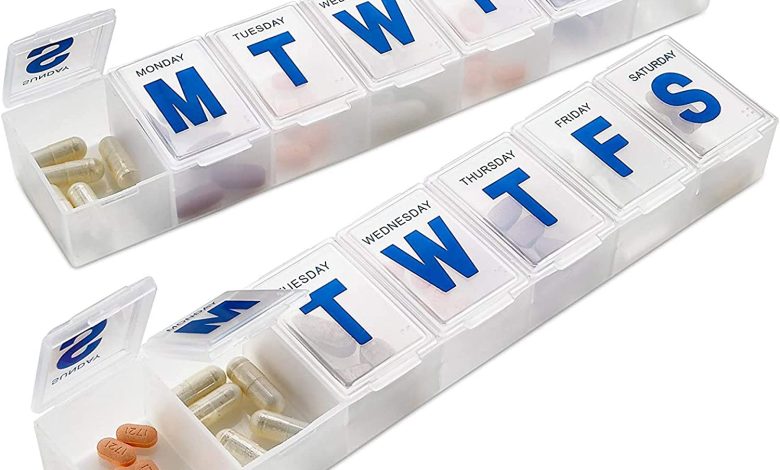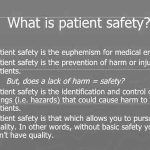Medication Management: Definition, Examples, Principles, Rights

Medication management is the process of ensuring that patients receive the correct medications, at the correct doses, and at the correct times. It involves a range of activities, including prescribing, dispensing, administering, and monitoring medications.
The medication management process is a complex series of steps that involves multiple healthcare providers and activities. Here are the key steps in the medication management process:
1. Medication prescribing: The medication management process begins with prescribing, which involves the healthcare provider selecting the right medication, dose, route, frequency, and duration based on the patient’s medical condition and other factors. The provider also considers any potential interactions or contraindications.
2. Medication dispensing: Once a medication has been prescribed, it must be dispensed by a pharmacist or other authorized provider. This involves verifying the medication order and ensuring that the medication is correctly labeled and packaged.
3. Medication administration: Medication administration involves giving the medication to the patient. This may be done by a nurse, physician, or other healthcare provider, depending on the medication and the patient’s condition. The provider must verify the patient’s identity, check the medication order, and confirm the medication is appropriate for the patient.
4. Monitoring for adverse effects: After medication administration, healthcare providers must monitor the patient for any adverse effects or side effects from the medication. This may involve laboratory monitoring, vital sign assessments, or other methods depending on the medication.
5. Medication reconciliation: Medication reconciliation is the process of comparing the patient’s current medication list to the medications prescribed or administered in the hospital or clinic. This helps to identify any discrepancies, potential interactions, or other issues that need to be addressed.
6. Patient education: Patient education is a critical aspect of medication management, as it involves providing patients with information about their medications, including potential side effects, proper dosing, and instructions on how to take the medication.
7. Documentation: All aspects of the medication management process must be documented in the patient’s medical record, including medication orders, administration, monitoring, and education.
Effective medication management requires collaboration and communication among healthcare providers, attention to detail, and a focus on patient safety.
What are the principles of medication management?
The principles of medication management are based on ensuring that patients receive the right medication, in the right dose, at the right time, for the right duration, and through the right route. Here are the principles of medication management:
1. Patient-centered care: Medication management should be patient-centered and involve the patient in the decision-making process. This includes providing information about the medication and its potential benefits and risks, and addressing any questions or concerns that patients may have.
2. Evidence-based practice: Medication management should be based on the best available evidence and guidelines to ensure that patients receive safe and effective care.
3. Team-based approach: Medication management involves a range of healthcare providers, including prescribers, pharmacists, and nurses. Effective communication and collaboration among team members are essential to ensure that patients receive the right medication and the necessary follow-up care.
4. Safety culture: Medication management should be guided by a culture of safety, where healthcare providers prioritize patient safety and identify and report medication errors and adverse events.
5. Continuous quality improvement: Medication management should be continuously monitored and evaluated to identify areas for improvement and to ensure that patients receive safe and effective care.
6. Technology-enabled care: Technology, such as electronic health records and computerized physician order entry systems, can help to improve medication management by providing access to up-to-date patient information and medication history, and by reducing the risk of medication errors.
What are the 5 rights of medication management?
The “5 rights” of medication management are a set of principles designed to ensure that patients receive the correct medication, in the correct dose, at the correct time, through the correct route, and to the correct patient. The 5 rights of medication management are:
1. Right medication: The medication prescribed or dispensed should be the right one for the patient’s medical condition and should be appropriate for the patient’s age, weight, and other relevant factors.
2. Right dose: The medication should be given in the right dose, which is appropriate for the patient’s medical condition, age, weight, and other relevant factors. The dose should be checked and verified before the medication is given.
3. Right time: The medication should be given at the right time, which is appropriate for the patient’s medical condition and the medication’s dosing schedule.
4. Right route: The medication should be given through the right route, which is appropriate for the patient’s medical condition and the medication’s formulation. For example, some medications may need to be given intravenously, while others may be given orally or topically.
5. Right patient: The medication should be given to the right patient, which involves verifying the patient’s identity before administering the medication.
By following these 5 rights of medication management, healthcare providers can ensure that patients receive safe and effective care and that medication errors are minimized.
Why is medication management important?
Medication management is an essential aspect of healthcare that involves ensuring that patients receive the right medication, in the right dose, at the right time, through the right route, and to the right patient. Here are some reasons why medication management is important:
1. Improving patient outcomes: Effective medication management can improve patient outcomes by ensuring that patients receive the right medication and that medications are used appropriately. This can help to improve patient health, reduce hospitalizations, and improve quality of life.
2. Reducing medication errors: Medication errors can have serious consequences for patient safety, leading to adverse events and even death. Effective medication management can help to reduce medication errors by ensuring that medications are prescribed, dispensed, and administered correctly.
3. Promoting patient safety: Medication management is critical to patient safety, as medications can have significant side effects and can interact with other medications or medical conditions. Effective medication management can help to identify and manage these risks, improving patient safety.
4. Reducing healthcare costs: Medication management can help to reduce healthcare costs by avoiding unnecessary medications, reducing the risk of adverse events, and preventing hospitalizations and emergency department visits.
5. Enhancing patient satisfaction: Effective medication management can help to enhance patient satisfaction by improving patient outcomes, reducing side effects, and ensuring that patients receive appropriate care.
Medication Management Examples
Here are some examples of medication management:
1. Medication reconciliation: During a hospital admission, a nurse or pharmacist will review the patient’s medication list and compare it to the medications the patient is currently taking. Any discrepancies are resolved, and the updated medication list is communicated to the healthcare team.
2. Computerized physician order entry (CPOE): Instead of handwritten medication orders, providers use electronic ordering systems that reduce the risk of medication errors. These systems can check for allergies, drug interactions, and dosing errors, improving patient safety.
3. Medication packaging and labeling: Some pharmacies use blister packs or other specialized packaging to help patients take their medications at the right time and in the correct dose. Labels on medications provide clear instructions for patients and help to prevent medication errors.
4. Patient education: Healthcare providers teach patients about their medications, including the purpose of the medication, how to take it correctly, and potential side effects. This helps patients to take their medications as prescribed and improves medication adherence.
5. Automated dispensing cabinets: These are computerized cabinets that store medications and allow nurses to access medications quickly and accurately. The cabinets can track inventory, control access, and help to reduce medication errors.
6. Medication monitoring: Healthcare providers monitor patients for adverse effects or side effects of medications. This may include laboratory monitoring, vital sign assessments, or other methods depending on the medication.
7. Medication therapy management: Pharmacists provide medication therapy management services to help patients manage their medications and ensure they are being used effectively. This may involve reviewing the patient’s medication list, identifying potential medication-related problems, and making recommendations to the healthcare provider.
Effective medication management helps to improve patient outcomes, prevent medication errors, promote patient safety, and reduce healthcare costs.





